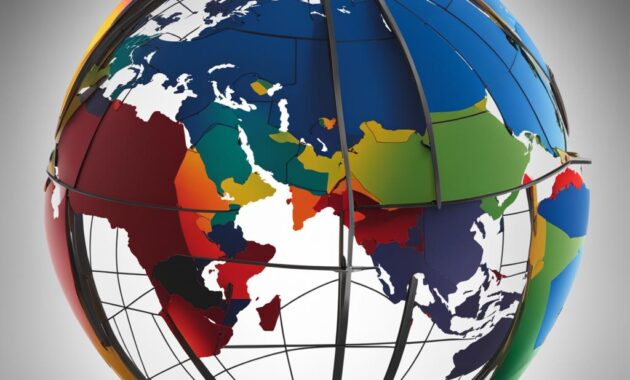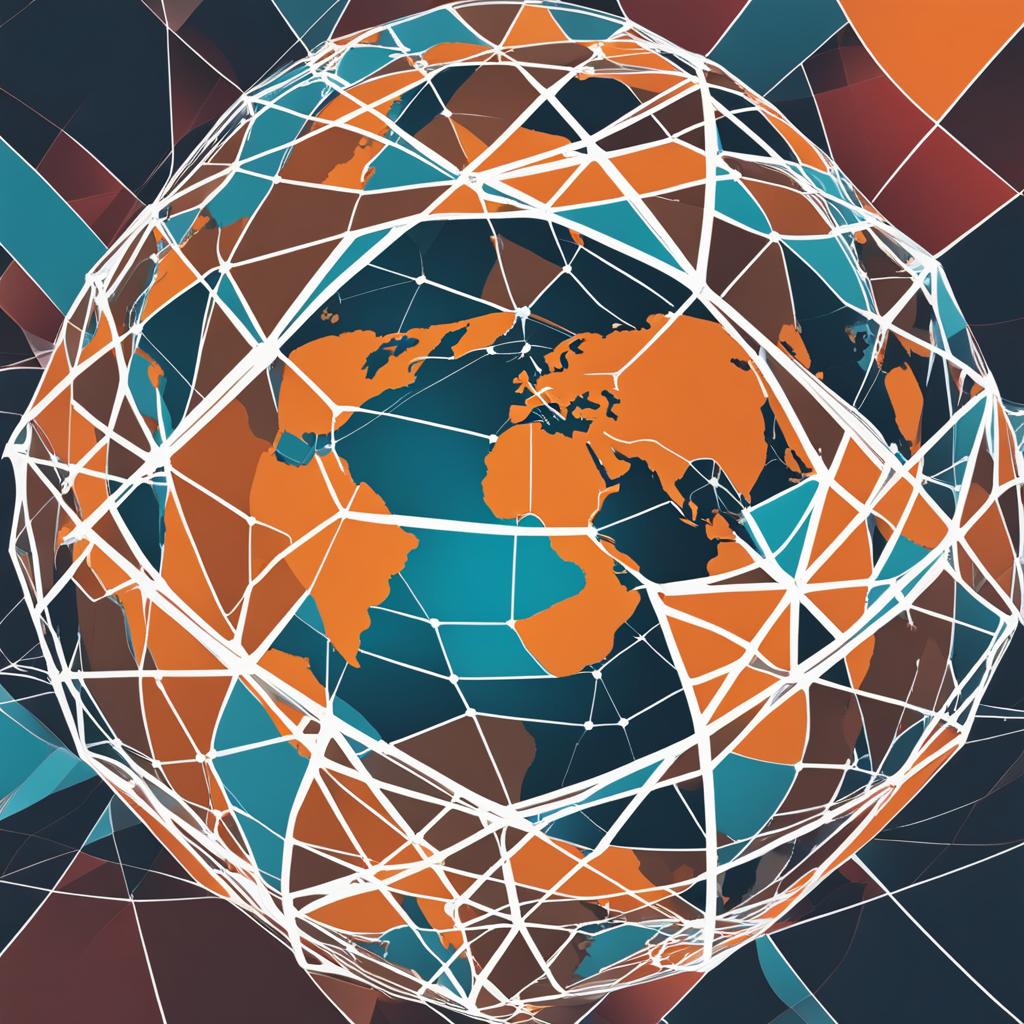Welcome to our comprehensive guide to understanding the global economy. In this section, we will explore the intricacies of the global economy and how it impacts various aspects of our lives. It’s no secret that the global economy is complex and ever-changing. From international trade to financial markets and economic policies, there are many factors at play that make it challenging to navigate.
However, understanding the global economy is crucial in today’s interconnected world. By comprehending its dynamics, we can make informed decisions that can positively impact our lives and businesses. This guide is designed to provide you with a comprehensive understanding of the global economy and its complexities, so you can navigate it with confidence.
Throughout this guide, we’ll delve deeper into the factors that influence the global economy, examine how it impacts businesses and individuals, and provide you with the tools you need to succeed in an ever-changing economic landscape. So, let’s dive in and explore the fascinating world of the global economy together!
Unveiling the Complexities of the Global Economy
Now that we have a basic understanding of the global economy, let’s dive deeper into its complexities. International trade, financial markets, and economic policies all play critical roles in shaping the global economy and influencing its trends.
International trade is a significant driver of the global economy, enabling countries to exchange goods and services with one another. The flow of trade is influenced by numerous factors such as tariffs, regulations, and trade agreements, and can have a significant impact on individual businesses and economies as a whole.
Financial markets, such as the stock market and foreign exchange market, are also integral parts of the global economy. These markets are highly sensitive to economic conditions and can experience significant fluctuations based on economic news and events.
“The stock market is a device for transferring money from the impatient to the patient.” – Warren Buffet
Economic policies, including monetary and fiscal policies, can also have a considerable impact on the global economy. For example, lowering interest rates can stimulate economic growth and encourage borrowing, while increasing taxes can generate revenue for governments but can also reduce consumer purchasing power.
The Interconnectedness of the Global Economy
It’s essential to recognize that these factors and others are not isolated from one another. Instead, they interact and influence each other in complex ways. For instance, changes in international trade policies can impact financial markets, which can then affect economic policies. This interconnectedness highlights the need for a comprehensive understanding of the global economy.
The Role of Technology
Advancements in technology have revolutionized the global economy, enabling faster and more efficient communication, facilitating the exchange of information and resources globally, and opening up new markets. The rise of e-commerce, for example, has expanded consumers’ access to goods and services, breaking down traditional barriers to entry and introducing new levels of competition.
However, technology also brings new challenges to the global economy, such as cybersecurity threats and concerns over job displacement due to automation and digitalization.
The Impact of Global Economy on Businesses and Individuals
As we have explored in previous sections, the global economy is a complex web of interconnected factors that can have a significant impact on businesses and individuals alike. In this section, we will analyze the effects of the global economy on these groups, highlighting the various ways in which economic trends and fluctuations can shape their lives.
The Effect on Businesses
The global economy has a profound impact on businesses of all sizes, from small startups to multinational corporations. Economic trends can influence market conditions, affecting consumer demand for goods and services. For example, during times of economic uncertainty, consumers may become more cautious with their spending, leading to reduced sales and revenue for businesses.
International trade is another key factor that businesses must navigate in the global economy. Tariffs and trade agreements can impact the cost of goods and materials, affecting a business’s bottom line. Fluctuations in exchange rates can also make it more expensive for businesses to conduct transactions with foreign partners.
The Effect on Individuals
At the individual level, the global economy can impact employment opportunities and consumer purchasing power. Economic fluctuations and downturns can lead to higher unemployment rates, making it more difficult for individuals to find work. In turn, this can cause financial hardship for families and communities.
Changes in exchange rates can also affect the value of currencies, influencing the cost of goods and services. For example, if a particular currency is weaker than another, it may be more expensive for individuals to purchase goods from foreign markets. This can reduce their purchasing power, making it more difficult to afford the products they need.
Case Study: The COVID-19 Pandemic
The COVID-19 pandemic has provided a stark example of the impact of the global economy on businesses and individuals. The pandemic led to widespread lockdowns and business closures, causing significant economic disruption around the world. Unemployment rates rose, and consumer demand for goods and services declined as individuals faced financial uncertainty.
Additionally, the pandemic had a significant impact on international trade, as supply chains were disrupted and travel restrictions were put in place. This affected businesses that relied on imports and exports, causing delays and shortages of goods and materials.

In conclusion, the global economy has a far-reaching impact on businesses and individuals alike, shaping market conditions, employment opportunities, and consumer purchasing power. By understanding these dynamics, businesses and individuals can better navigate the complexities of the global economy and make informed decisions to succeed in a rapidly changing world.
The Impact of Global Economy on Businesses and Individuals
We cannot overemphasize the significance of the global economy on individuals and businesses. The global economy is a complex web of interconnected economic activities that impact individuals, businesses, and nations around the world. Economic trends and fluctuations can affect employment opportunities, market conditions and impact consumers’ purchasing power.
Impact on Businesses
Businesses are directly affected by the global economy, and economic trends and fluctuations can shape market conditions, affecting their performance. The global economy affects businesses in various ways, such as:
- International trade: International trade can benefit businesses by opening new markets and increasing access to resources, but it can also expose businesses to foreign competition, which can be challenging.
- Financial markets: Fluctuations in financial markets can affect businesses’ access to capital, financing costs, and investment opportunities.
- Economic policies: Government economic policies such as taxes, regulations, and subsidies can directly affect businesses’ operations and bottom line.
Impact on Individuals
Individuals are also directly affected by the global economy, and economic trends and fluctuations can impact their daily lives. The global economy affects individuals in various ways, such as:
- Employment: Economic fluctuations can impact the availability of employment opportunities, wage rates, and job security.
- Purchasing power: Economic trends and fluctuations can impact the cost of goods and services, which can influence individuals’ purchasing power.
- Standard of living: Economic growth can directly impact individuals’ standard of living, providing more opportunities for personal and professional development.
Therefore, understanding the dynamics of the global economy is essential for businesses and individuals alike. By keeping abreast of the trends and fluctuations of the global economy, individuals and businesses can make informed decisions, navigate the complexities of the interconnected world and thrive in an ever-changing economic landscape.




